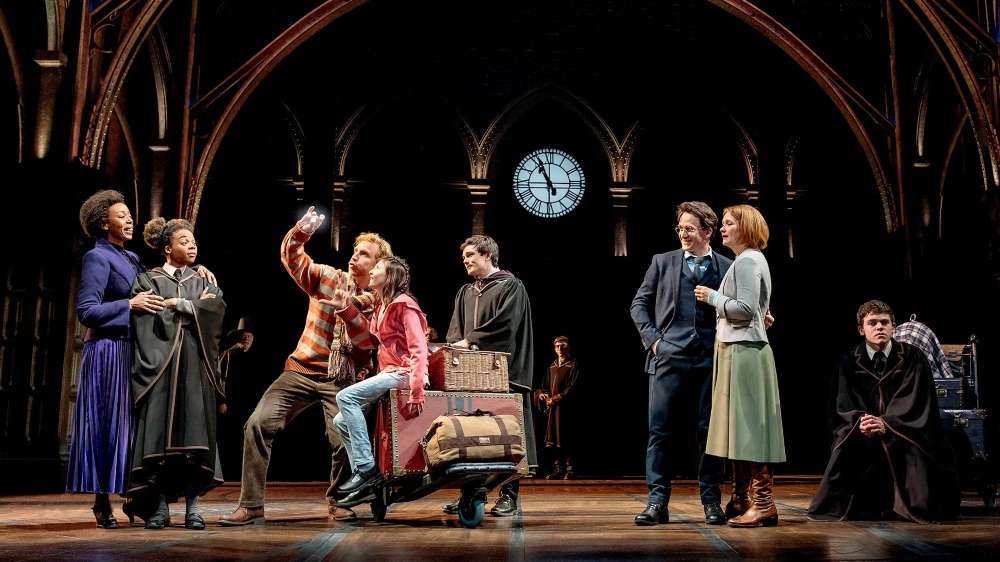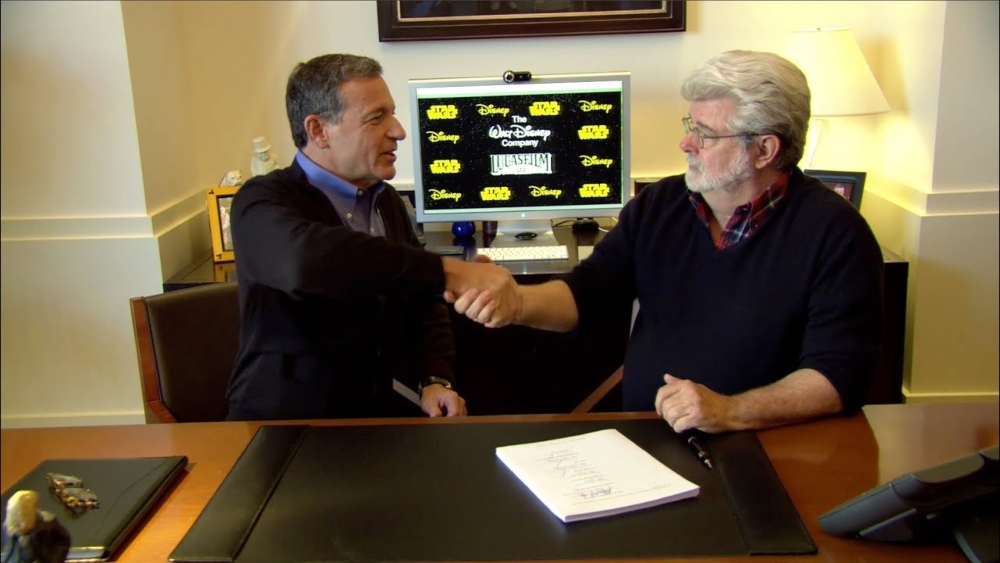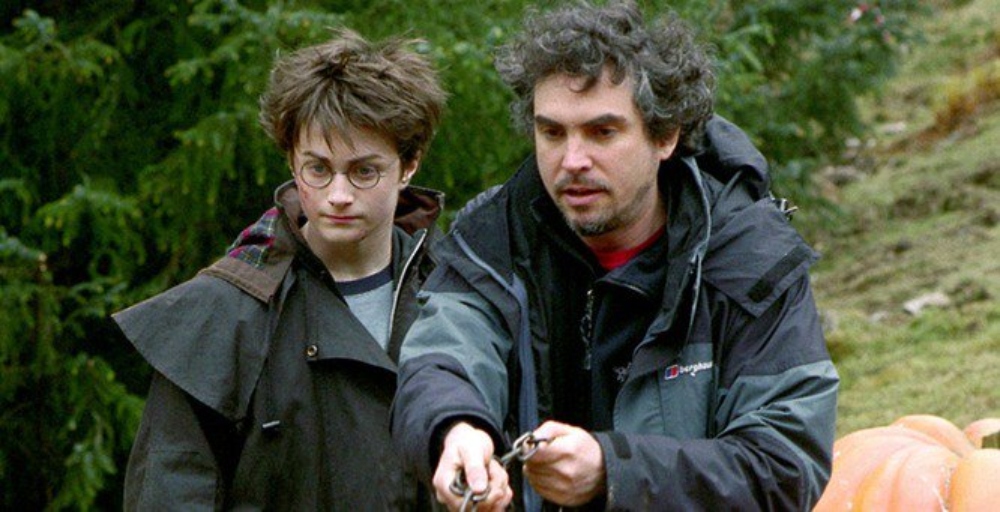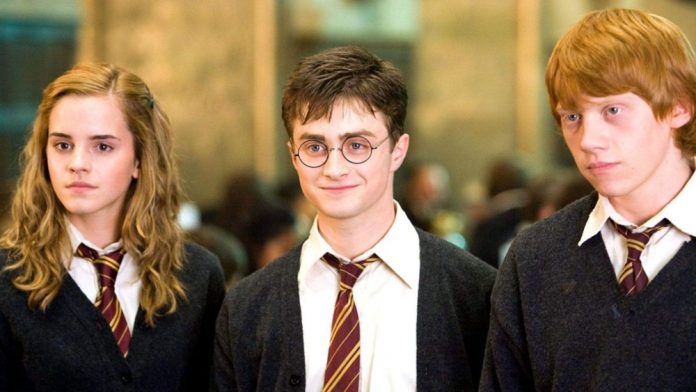The slow push into the Warner Bros. logo. Those whimsical opening notes from John Williams‘ iconic theme. From November 2001 to July 2011, this was your gateway entrance into the wizarding world of Harry Potter.
The introduction brought a feeling of awe and wonder, not only to audiences around the world ready but also to Warner Bros. shareholders.
With an average domestic gross of around $295 million and a worldwide performance ranging between approximately $800 million and $1.3 billion, the studio could always rely on the Boy Who Lived. A typical Potter installment could be the cherry on top of an already great earnings year or help prop up a not-so-hot year and get them to the goal line. With the exceptions of Marvel Studios and the Eon-produced James Bond films, no other franchise has come with that kind of guarantee, and even they have had a few under-performers in their catalogs, which isn’t the case with Harry Potter if you, like me, consider the Fantastic Beasts films to be a separate box office entity.
Just as moviegoers today love nothing more than a warm blanket of nostalgia draped over their entertainment, the new Warner Bros. Discovery regime is nostalgic for those box-office receipts — a sentiment echoed by David Zaslav during a recent investor call. Zaslav sounded like a CEO who’s ready and willing to play ball with Harry Potter creator J.K. Rowling, if something can be worked out.
I’m not clairvoyant, nor is this some kind of world-exclusive scoop, but I’m quite confident that Harry Potter will return to the big screen, and not only will Daniel Radcliffe reprise his iconic role, but Emma Watson and Rupert Grint will also be back as Hermione Granger and Ron Weasley. There’s simply no avoiding this outcome, as it is merely inevitable, plus, it makes good business sense for both the studio and the franchise’s three original stars.
The only question is what the hypothetical Potter reunion film would actually be…

Puck News recently reported that the prior Warner Bros. regime attempted to adapt the Rowling-penned stage production Harry Potter and the Cursed Child for the big screen, though the author refused to sign off on the project. Zaslav will reportedly make another attempt to kiss the ring and convince Rowling to make the deal, as conventional wisdom suggests The Cursed Child is the way to go, and exactly what would get fans excited about this fallen franchise again.
That thinking, however, is wrong.
Not only has the stage play received mixed — even negative, in many cases — reactions from fans, but the three leads appear in more of a supporting capacity, and characters like Severus Snape (originally portrayed by the late Alan Rickman) are predominantly featured. The thought of recasting isn’t sacrilege — iconic roles are recast all the time — but one has a hard time imagining them going through with that, given the circumstances, and without Rickman, I’d be surprised if another actor could bear the emotional weight that role requires.
No, the route to take — and the one I personally think will ultimately be decided upon — will be an original story created exclusively for the big screen with the three leads front and center. In effect, if Zaslav is smart, he’ll deliver Harry Potter‘s answer to Star Wars: The Force Awakens.
Of course, this could all be a moot point. For this to happen, Warner Bros. must address the elephant in the room — Rowling herself.
The Harry Potter creator has gone from being one of the world’s most admired authors to one of its most reviled figures in short order, thanks singularly to her objectionable stance on the transgender community and her continued unwillingness to either back down from her past remarks or simply move on to other topics. Her statements have even brought welcome condemnation from Radcliffe, Watson, and Grint, who may owe Rowling their careers but refused to stay silent in the face of her regrettable transphobia.
Look at the pictures from Aug. 23, 2000 when Radcliffe, Watson, and Grint were introduced to the world. They were practically babies back then, and now they’re all in their early 30s, having grown up and come a long way since then. As they’ve grown up, their feelings toward Rowling have changed, and I wouldn’t be surprised if they banded together and demanded that, as a condition of their potential return, Rowling’s personal participation be kept to a minimum, if it’s even necessary to begin with.
The problem is that her deal with Warners complicates matters. The studio owns the film rights, yes, but Rowling herself retains the character rights. Meaning they couldn’t turn around and make a movie involving any of those characters, or even one set in that world with a new cast of characters, without her consent. Creatively — and legally — speaking, Warner Bros. Discovery and Rowling are stuck together in an awkward marriage of necessity. The studio would have to be willing to pay a pretty penny to cut her out of the picture altogether. Though it just might be worth it.

After all, Disney paid just over $4 billion for Lucasfilm, and in hindsight, that deal seems like a bargain. Of course, George Lucas was ready to wash his hands of the whole thing. Rowling would have to sell off her rights altogether, just as Lucas did with not only Star Wars and Indiana Jones, but also Industrial Light & Magic and Skywalker Sound. If she didn’t want to sell off the rights, she could agree to take a bigger slice of the pie in exchange for agreeing to back off altogether. In effect, to shut up and just take the money.
When this very subject was brought up on a recent episode of The Hot Mic, our good pal John Rocha insisted there was no way Rowling would do so — the power and the relevancy were too much to let go. John is hardly alone in those views, and I get that.
And as those thoughts ran through my head, I thought of my own dad, who had a sales background, and something he often said over the years: “You buy what you pay for, and everyone has a price.”
In the sales world, if you can’t close the deal, you bring in someone else who can. That’s not to throw any shade at David Zaslav but perhaps he’s not the perfect person to negotiate this particular deal and unearth the “Yes” buried in that sea of “No’s.” It just so happens, however, that he has someone on the payroll who can… because they already have before.
His “consigliere,” Alan Horn.
His reputation rivals that of the late great Alan Ladd Jr. — an executive-turned-studio head who could blend into the corporate world but easily walk onto the set of any project and be greeted warmly — even embraced — by creatives. Unlike most modern-day executives, he knew enough to stay out of the way unless the situation truly called for an executive overview, and, most importantly, he let the creatives be creative.
When Horn first sat on WB’s iron throne back when he was running in 1999, he turned heads with one of his very first moves. He managed to close a deal with Rowling by promising to not push her to the side when it came to the Harry Potter movies — a standard practice that most authors fall victim to, including some of the most powerful names in publishing — and give her a vote in the franchise’s major creative decisions such as casting and the choice of director.
Horn has put together a long list of accomplishments during his time at both Warner Bros. and later, Disney, but reeling in the Harry Potter franchise remains his single greatest accomplishment and, yes, the one that will be on his tombstone.
If anyone at Warner Bros. Discovery is reading this, be smart and get Horn in a room with Rowling, because if there is anyone who can close a deal with her, it’s him. Make no mistake about that.

As for who should direct the hypothetically-titled Harry Potter Returns is anyone’s guess. Chris Columbus certainly deserves more credit and respect for the Herculean task of casting those kids — plucking them from total obscurity — and creating that world onscreen with Harry Potter and the Sorcerer’s Stone and its direct follow-up, Harry Potter and the Chamber of Secrets. He should get the first right of refusal.
But realistically, we all know that Warner Bros. will move heaven and earth to bring back Alfonso Cuarón, whose 2004 entry Harry Potter and the Prisoner of Azkaban is widely regarded as the finest installment in the franchise, plus he went on to win a pair of Best Director Oscars for Gravity and Roma.
But this is all conjecture right now. WB’s current priority is likely a meeting of the minds, as the new regime (including Zaslav and Horn, and Michael De Luca and Pamela Abdy) must sit down with Rowling and discuss what it will take in order for the Boy Who Lived to return as the Man Who Lives On.
Respectfully, if Zaslav or someone in his administration can’t convince Rowling to stand aside, I would be looking for a CEO who can if I were a key shareholder at Warner Bros. Discovery, because there is no more important franchise to the studio’s bottom line, and that includes both Batman and Superman — two guys who might just have to take on Voldemort if Harry Potter stays on ice. Think either of them is any good at quidditch?



